Becoming a Certified Tea Sommelier
on Nov 21, 2018, Updated May 24, 2022
This post may contain affiliate links. As an Amazon Associate, I earn from qualifying purchases.
Interested in finding out what’s involved in becoming a certified Tea Sommelier? I’ll walk you through my experience.
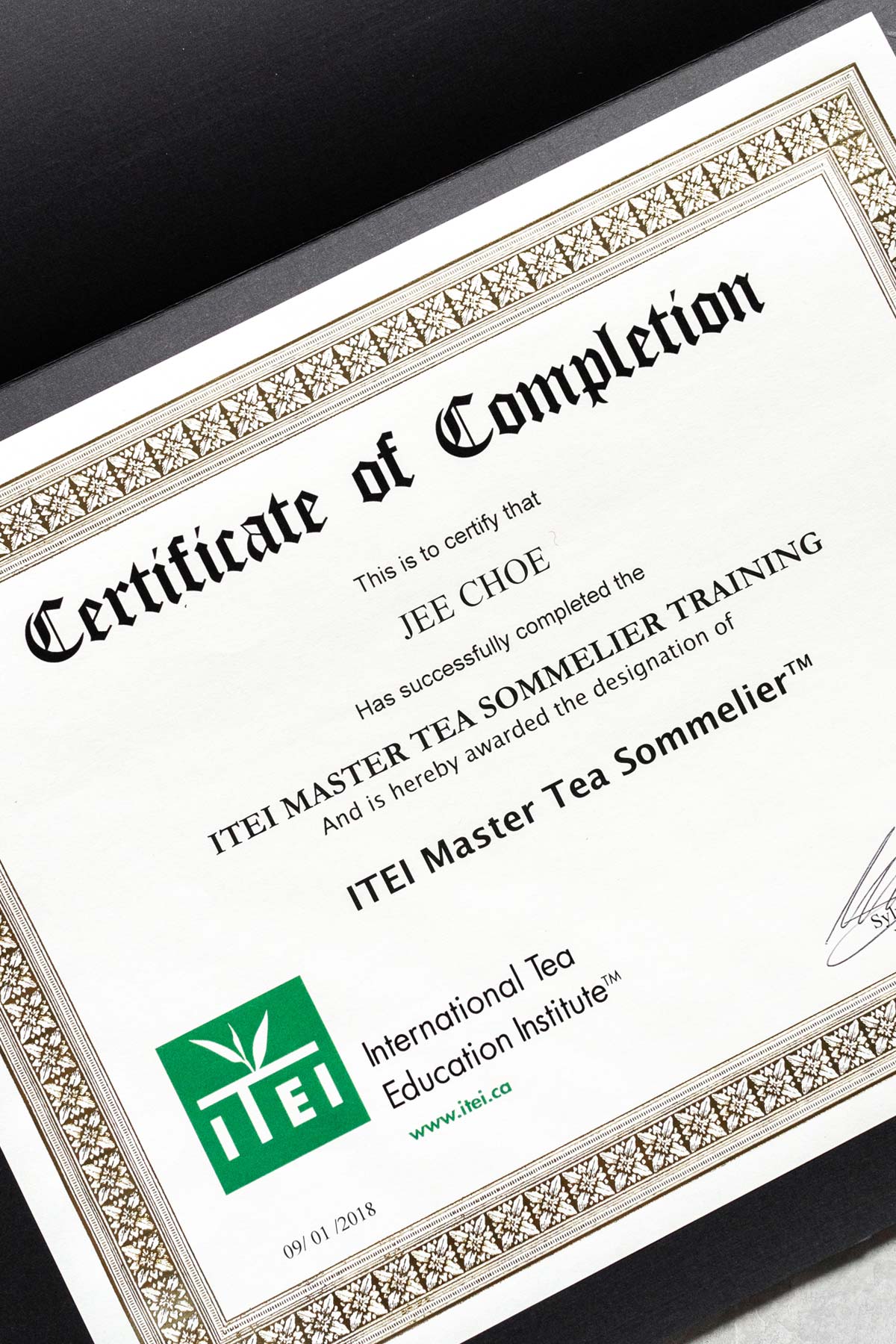
What is a Tea Sommelier?
- A certified Tea Sommelier is a trained professional who has expertise in tea.
- Tea sommeliers know how to identify different types of tea, taste and brew using the proper techniques, and have an understanding of tea and food pairings.
- The title Tea Sommelier is usually given to people who have gone through a certification program.
RELATED: Tea Sommelier’s Guide to Getting Into Tea, Top 10 Tea Sommelier Tips to Make a Better Cup of Tea, How to Make Tea
Tea Sommelier Controversy
A lot of people in tea really dislike the term Tea Sommelier. I think it’s because they think it cheapens the tea knowledge process.
Most people who are well-versed in tea learned it through years and years of drinking and teaching themselves about tea. So to some, plunking down a shiny penny or a couple of thousand (certification isn’t cheap!) may seem like a money grab and a shortcut.
Tea experts will all tell you that instead of spending the money, it’s better to learn it on your own by drinking a lot of tea and reading books.
Ahem. No thanks. I learn best when there’s a structured program and I know there is a good foundation in place. That’s why I got certified as a Tea Sommelier.
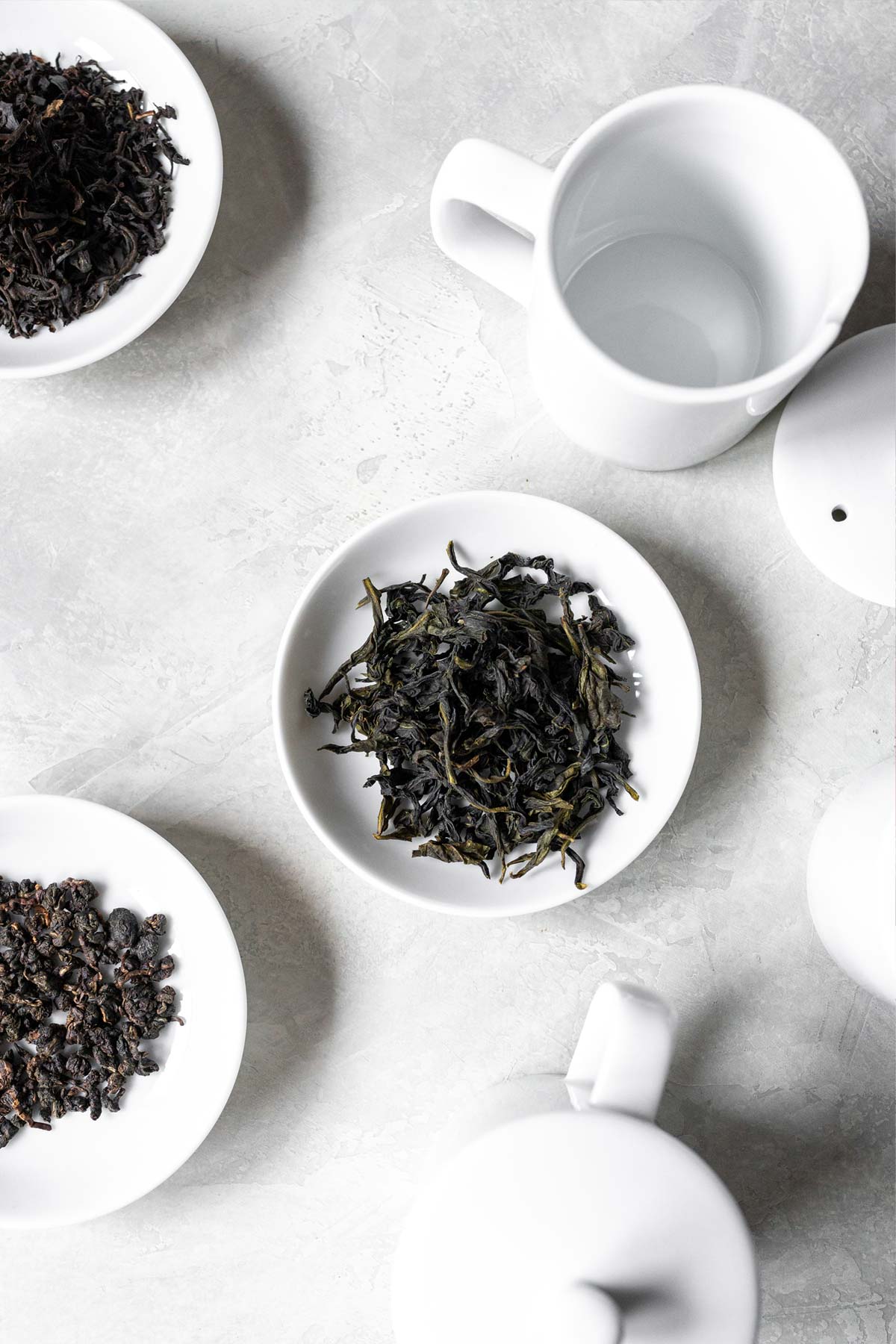
Choosing a Tea School
I spent a while trying to find the right tea school to get the certification. Most programs are around $1000-$2000, so it’s not something to jump into lightly.
Through my research, I did find that some tea schools are definitely a money grab. I’ve heard some horror stories.
I first searched online and found three tea schools in the U.S. As I was getting close to signing up for one, Jo, a tea professional I respect, suggested that I look into tea schools in Canada.
So I did. And I signed up for the Tea Sommelier certification program at ITEI, International Tea Education Institute.
Fellow tea bloggers Sara and Georgia also signed up too! It was really nice that we got to go through this experience together.
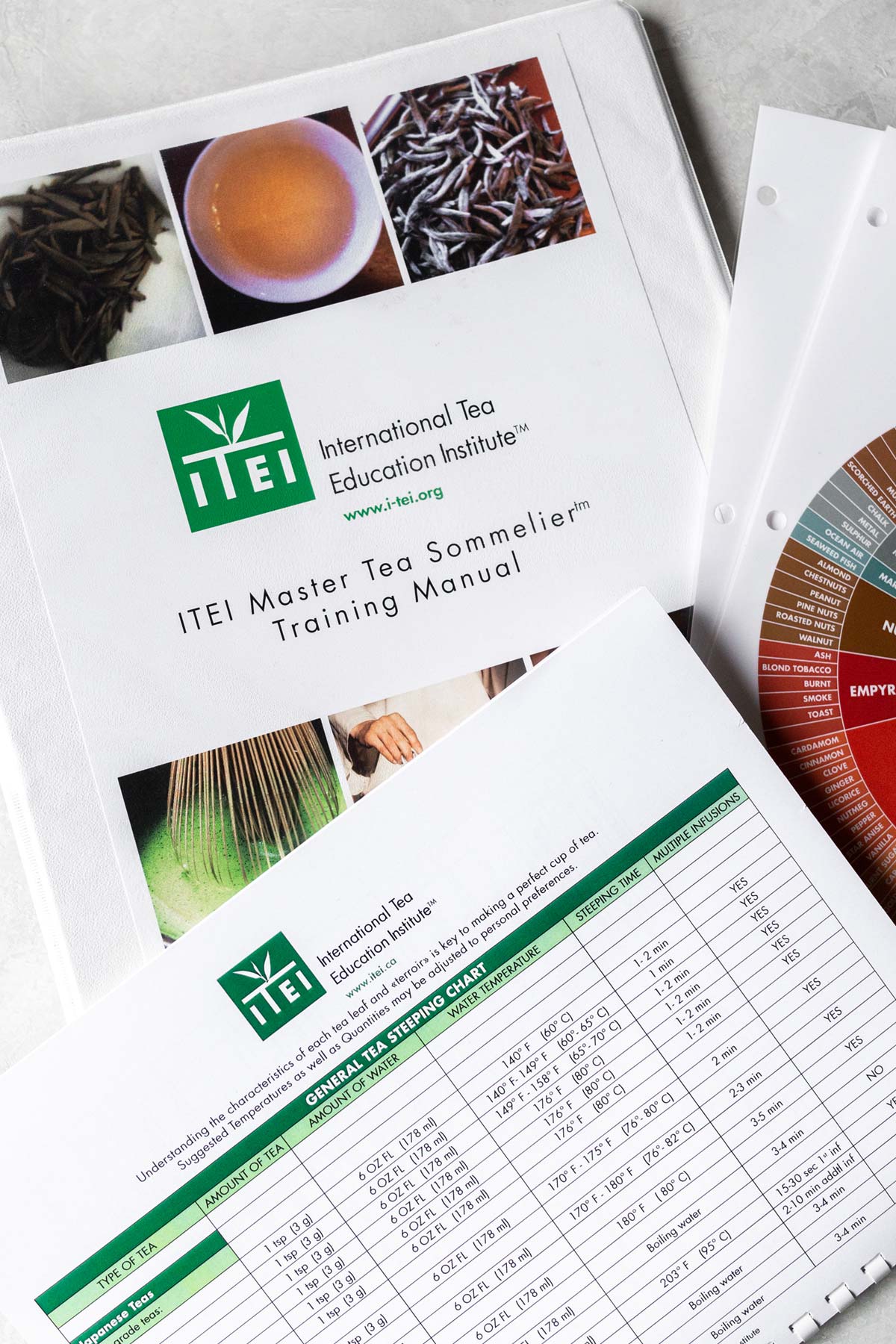
ITEI Tea Sommelier Program
After I registered for the course I was mailed a box of items I would need for the course that included tea, teaware, and a binder filled with charts and tea tasting guides.
ITEI’s program is all live, online. It was like a semi-private course done through Skype.
The ITEI course is broken up into nine sections or modules, each covering a different lesson. Each module ends with an open book exam that you take on your own time.
Each module is approximately 3.5 hours and those hours were spread over 3 weeks, so about an hour for each class.
Classes are made up of PowerPoint lectures (all live so you can questions), discussion, and tea tastings. I learned how to prepare all different types of tea.
The best part about doing everything over Skype was that the instructor can watch you brew the tea and pour so that they can make corrections. (I needed a lot of help using the gaiwan the first few times.)
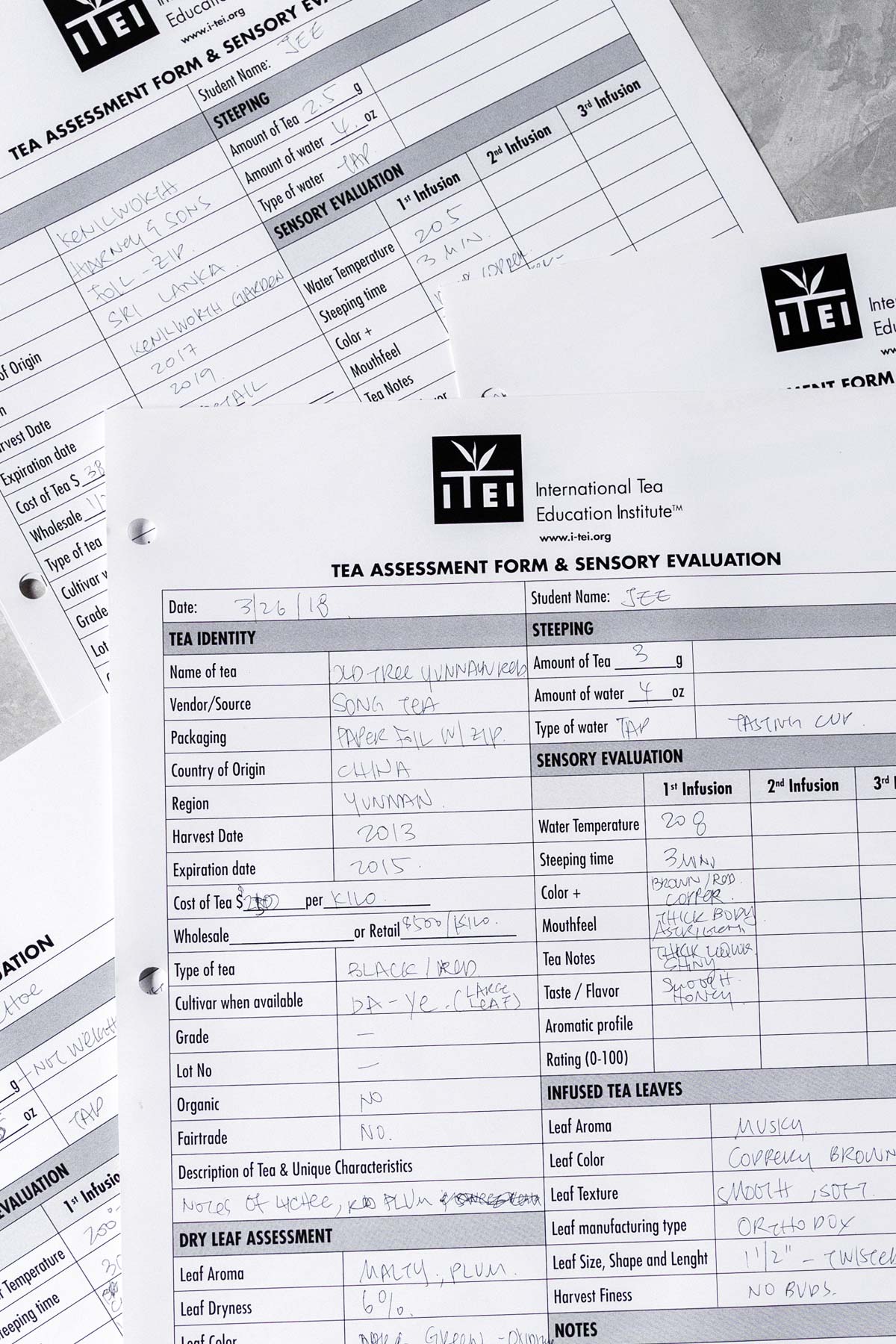
The tea brewing classes were my favorite. There were so many little steps in the process that I didn’t even know to look for before taking this course.
We evaluate the dry tea, the wet tea leaves, the water temperature, and tasting notes. Everything is jotted down and filed.
The first time I did a tea tasting and assessment, it took an hour and a half, since I had to stop and take notes. By the time I got the hang of it, I was able to do it in 20 minutes.
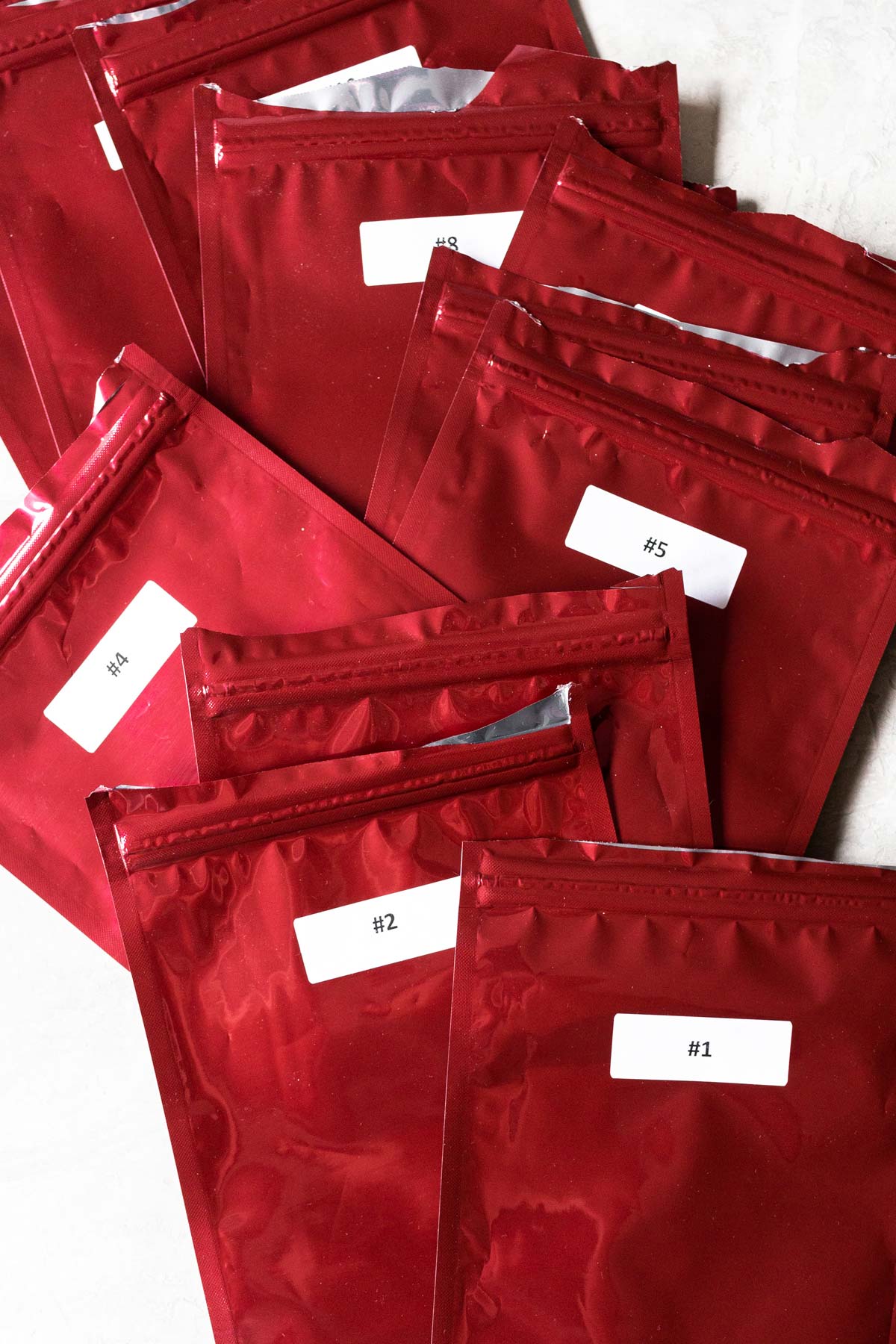
Tea Sommelier Certification Final Exam
This is a doozy. The final exam was a tasting to identify 12 unlabeled teas. YES, I KNOW.
12 numbered red foil envelopes arrive when it’s time for the final exam. You can’t open anything and must wait until you’re on Skype with the instructor.
Over the course of two hours (YUP, TWO HOURS), the final exam took place. The instructor would let me know which numbered bag to open and I had to brew each one, taste, then let the instructor know what kind of tea it was.
It was hard. I knew for sure I got most of it right, but the black teas were a little tricky for me since it’s the tea I drink the least.
A few weeks later, I received my test results. I PASSED! YAY!!! And a little while later, I got my certificate mailed to me.
Every tea school conducts their final exam differently, but this was my experience with ITEI.
Becoming a Tea Sommelier
For me, the Tea Sommelier course was just the foundation and the start of learning about tea.
From the time I registered for the course and until I got the certificate, it took me two years. I did take a few months off but it’s not a course you can finish in a couple of months.
It takes time to take in all the information, in practicing how to brew properly, and learning to differentiate the different types of tea.
If you’re seriously interested in learning more about tea, and especially about pairing food with tea in a structured program, I would highly recommend taking a Tea Sommelier course.
But don’t go in thinking you’ll graduate knowing everything there is to know about tea, because you won’t — that’s pretty much impossible.
Looking back, would I take this course over again? ABSOLUTELY. I got a ton out of it and loved my experience.
Related
- Types of Tea
- Where to Buy Tea Online
- Difference Between Loose Leaf Tea, Tea Sachets, and Tea Bags
- Earl Grey Tea
- Want to Get into Green Tea? Start Here.
Want to save this to Pinterest for later? Pin it now to your Pinterest board!
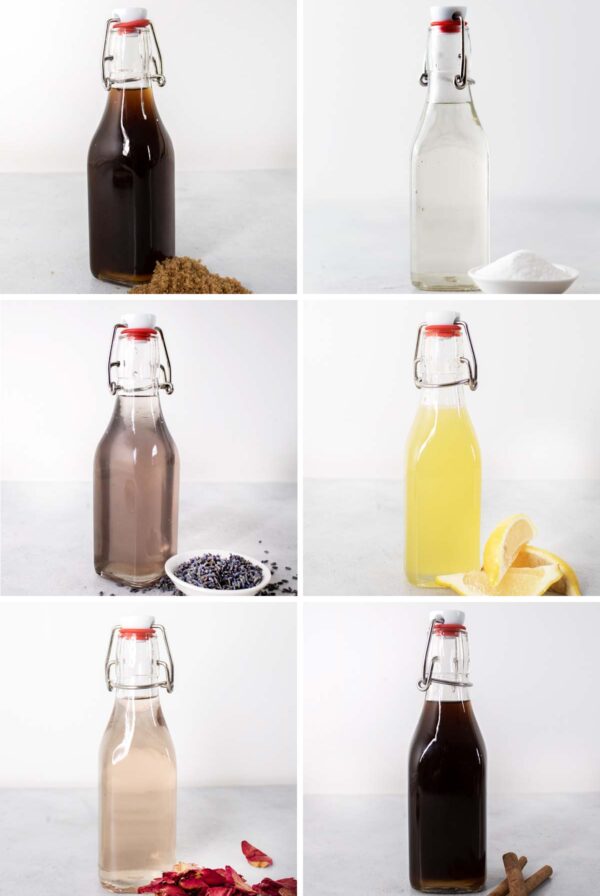
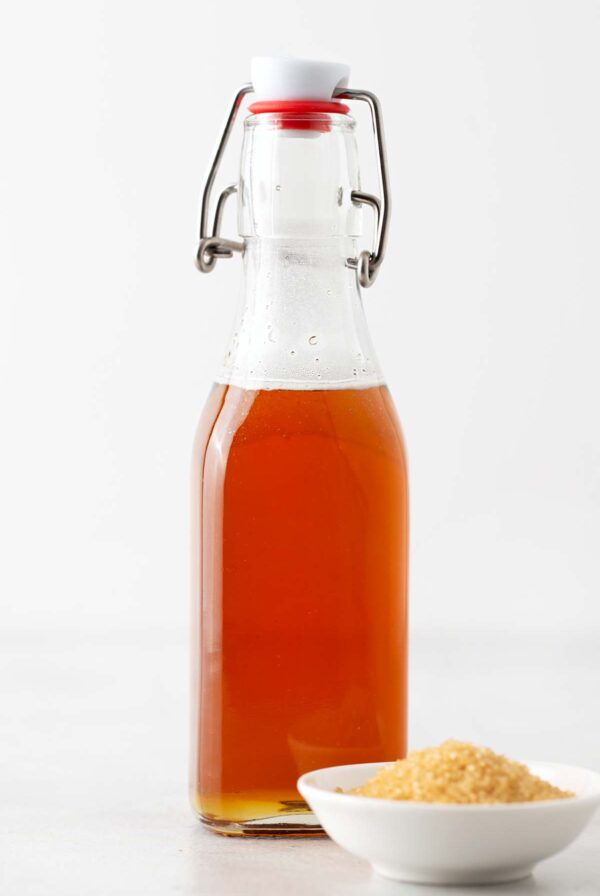
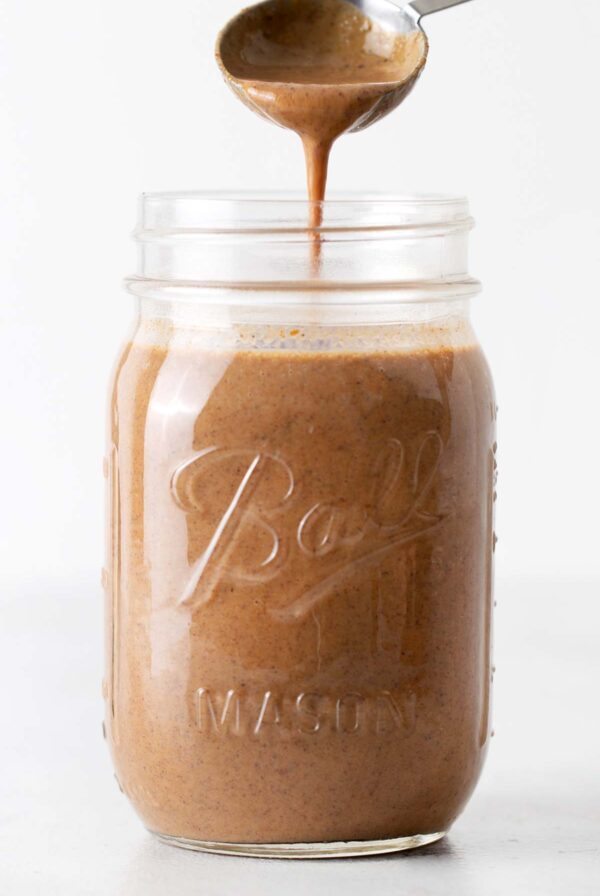
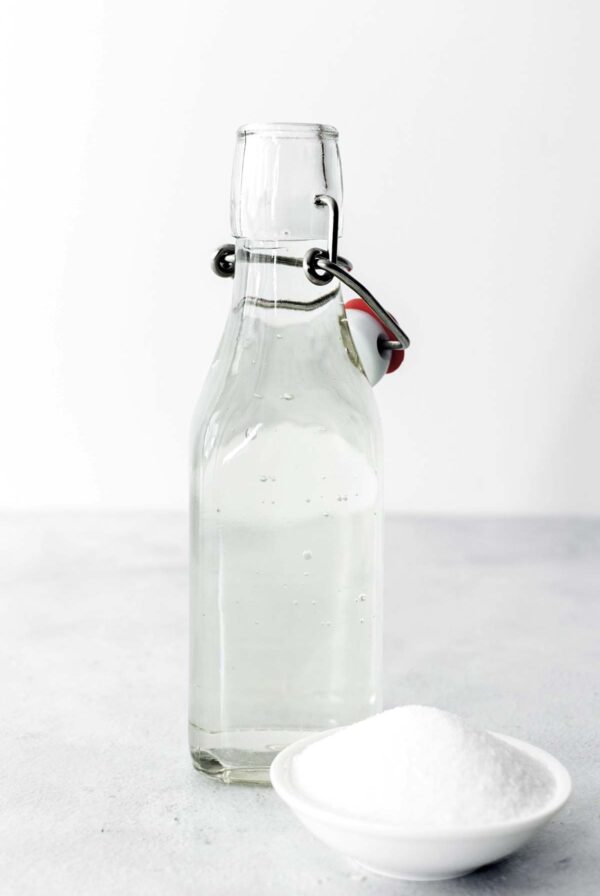








I am curious about taking a Tea Sommelier course, but for the investment of time and money, what does the certificate do for you? Is there employment for a certified sommelier? Or is this something for personal knowledge only?
Hi Peggy, I did it for the the personal knowledge. I think others get it to start tea businesses.